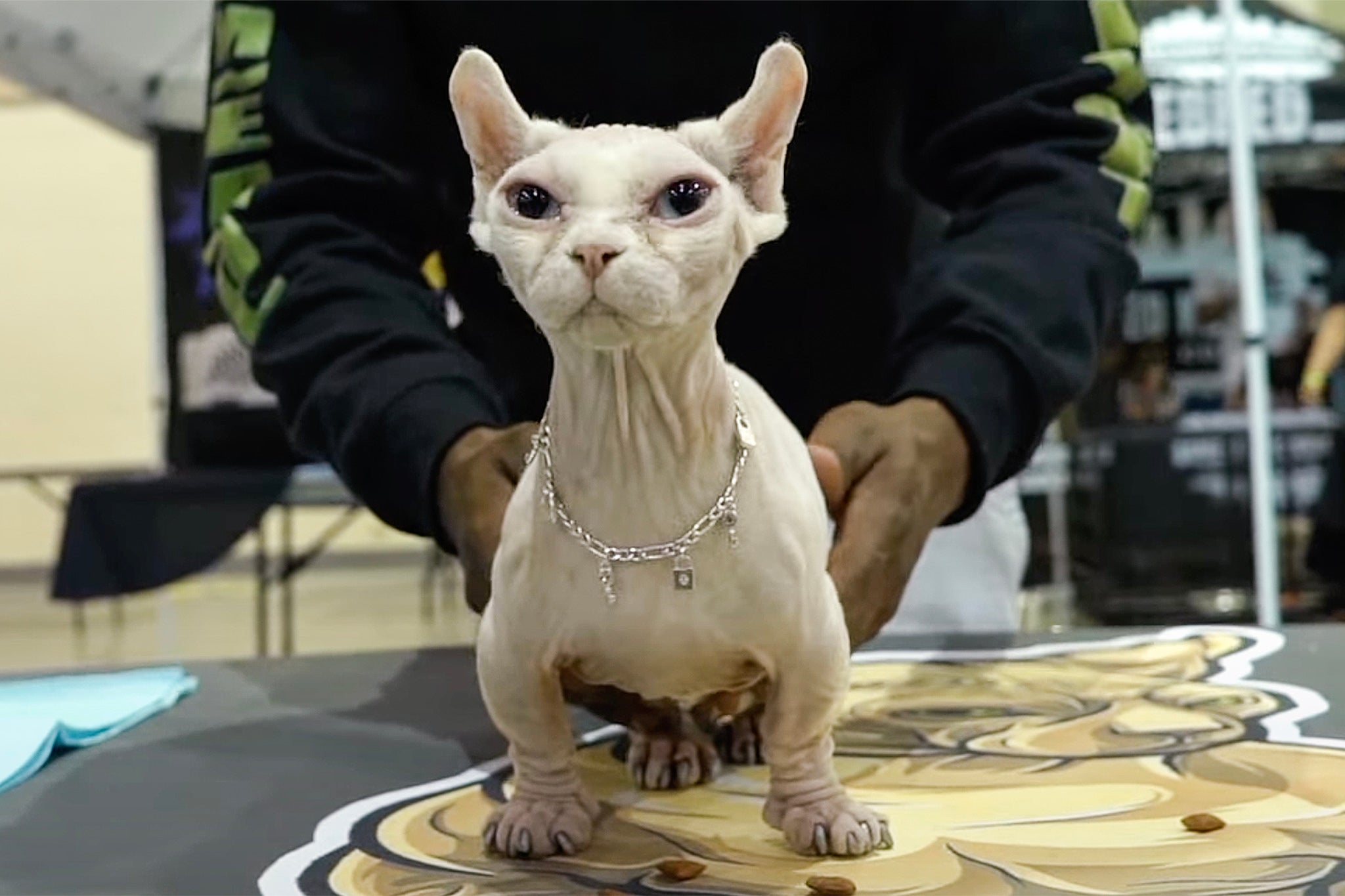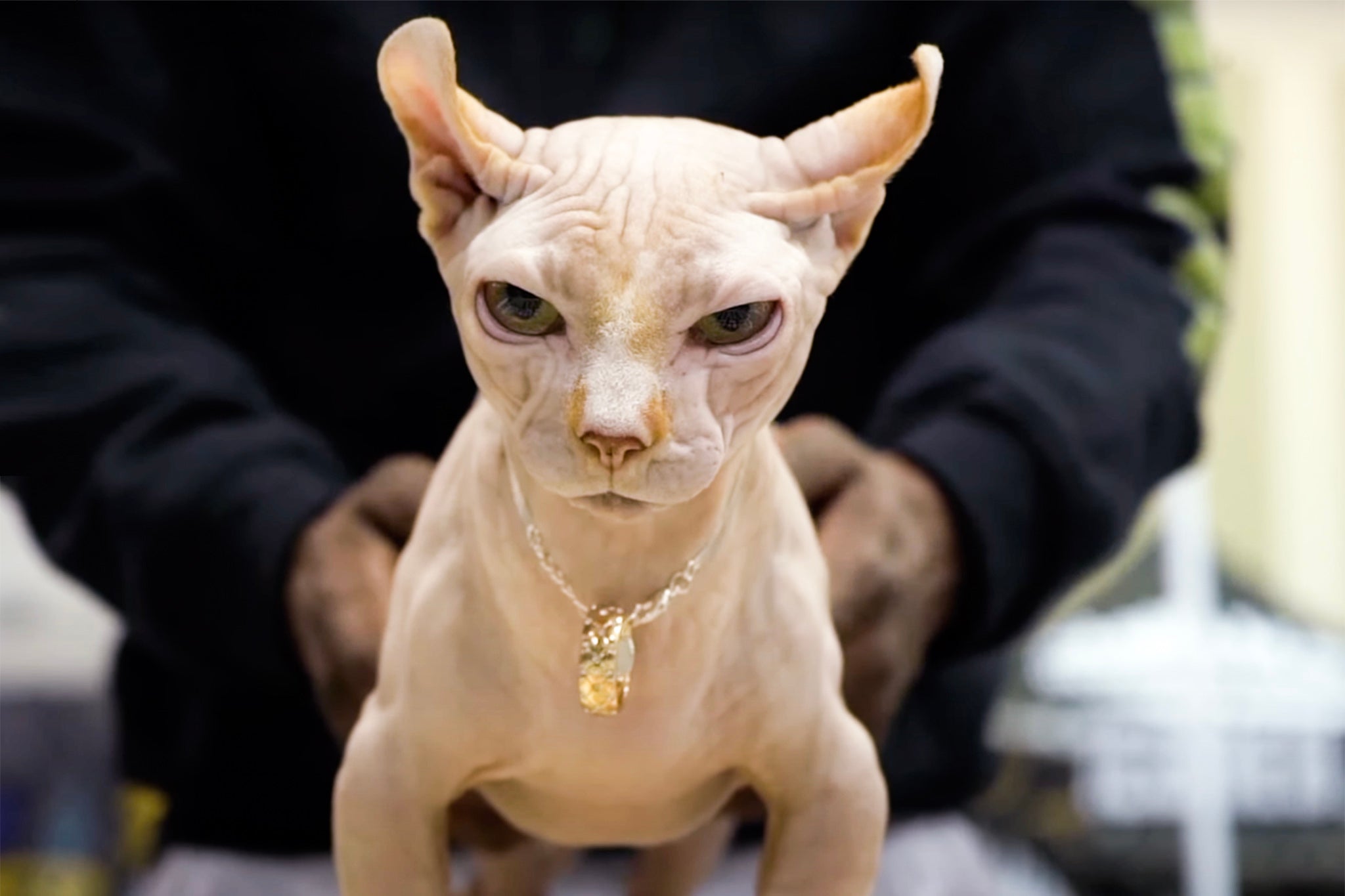Fresh warning issued over hairless ‘bullycats’ amid rising trend on social media
Experts warn new breeds of hairless cats are more likely to suffer health issues and have a lower life expectancy

Your support helps us to tell the story
From reproductive rights to climate change to Big Tech, The Independent is on the ground when the story is developing. Whether it's investigating the financials of Elon Musk's pro-Trump PAC or producing our latest documentary, 'The A Word', which shines a light on the American women fighting for reproductive rights, we know how important it is to parse out the facts from the messaging.
At such a critical moment in US history, we need reporters on the ground. Your donation allows us to keep sending journalists to speak to both sides of the story.
The Independent is trusted by Americans across the entire political spectrum. And unlike many other quality news outlets, we choose not to lock Americans out of our reporting and analysis with paywalls. We believe quality journalism should be available to everyone, paid for by those who can afford it.
Your support makes all the difference.Cat owners have been urged to avoid the newly emerging “bullycats,” a hybrid breed that resembles the controversial XL bully dogs.
Breeders in the US have created the new cat breed by mixing the hairless gene from Sphynx cats with the short-legged gene from Munchkin cats.
However, animal welfare experts have raised concerns over the potential health issues the felines may face, predicting they could live an average of six years - which is less than typical cats.
Dr Grace Carroll, an animal behavior specialist at Queen’s University Belfast, warned pet owners to carefully consider the implications of buying such experimental breeds. “Consumers hold purchasing power,” she said.
“By refusing to buy breeds with extreme traits, we can discourage breeders from prioritising aesthetics over the health and welfare of the animals.”

She called for ethical breeding to allow cats to be healthier and engage in natural feline behaviors, such as climbing, jumping, and basking in the sun.
Despite these warnings, the cats are continuing to gain popularity on social media, with breeders insisting that the cats are health-tested and completely functional.
However, Dr Carrol insists the cats are at high risk for numerous health problems because of their lack of fur that can lead to sunburn and skin cancer.
She added: “Kittens already have a limited ability to regulate their body temperature, which is further complicated by hairlessness, making them susceptible to respiratory infections and skin issues.”
Since February, it has been a criminal offence to own an XL bully dog in England and Wales without an exemption certificate, but there is no specific legislation regulating the breeding of cats.
Animal welfare organisations are particularly concerned about the rise of “bully cats”, with the NatureWatch Foundation highlighting the “disturbing” trend on platforms like Instagram and TikTok.
A spokesperson said: “It’s shocking to see these poor cats starting to appear in the UK. This kind of breeding is just cruel.”
Earlier this year, an RSPCA spokesperson urged breeders to prioritise the health and welfare of any animal over the way they look.
They added: “We understand that their emerging presence on social media may fuel a demand for these kinds of cats but we would urge fellow cat lovers to consider adopting the many rescue cats in our care instead of buying from a breeder.”
Join our commenting forum
Join thought-provoking conversations, follow other Independent readers and see their replies
Comments